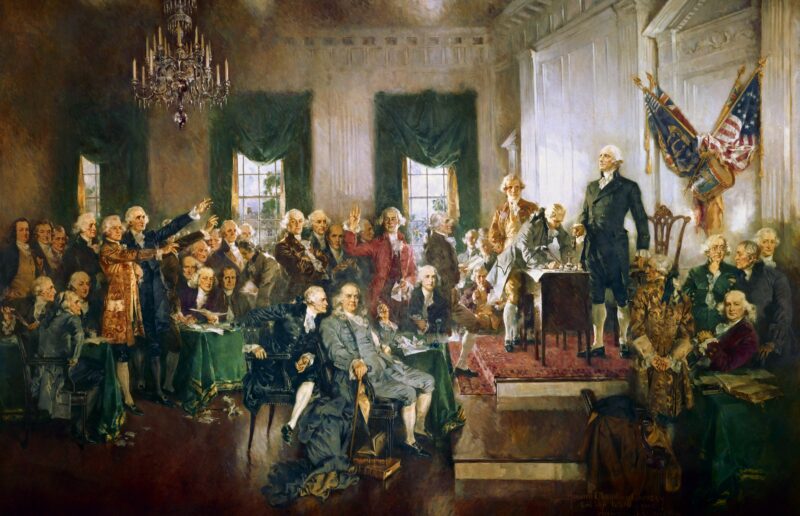Alexander Hamilton
In Summary
“Give all power to the many, they will oppress the few. Give all power to the few, they will oppress the many. Both therefore ought to have power, that each may defend itself against the other.”
Alexander Hamilton
Speech at the Constitutional Convention
Alexander Hamilton served as George Washington’s aide in the Revolutionary War, he was the youngest delegate at the Constitutional Convention, and eventually became the first U.S. Secretary of the Treasury. His writings in the Federalist Papers certainly contributed to the ratification of the Constitution and he successfully established the National Bank. Below are some of his most important works and you can learn more about him on the Alexander Hamilton Discovery Page.
JMC Resources

Federalist Papers
Alexander Hamilton wrote 51 of the 85 Federalist Papers. As Publius, Hamilton, Madison, and Jay argued the benefits of the newly proposed Constitution and the many insufficiencies of the Articles of Confederation. In Federalist, No. 9, Hamilton references the work of Montesquieu and the unique ability of confederate republics in preventing factions from inconveniencing the whole society.
In the papers below, Hamilton explains in detail the many problems of the arrangement of states under the Articles of Confederation. Some of these deficiencies include insufficient power of the central government to enforce its laws, weak relations between individuals and the central government, and the inability for the central government to raise troops for the common defense.
In the penultimate paper of the series, Hamilton addresses a primary concern of many Anti-Federalists: the absence of a Bill of Rights from the proposed Constitution.

Economic Policy
When George Washington was elected President, he appointed Alexander Hamilton as the first U.S. Secretary of the Treasury. In this position, Hamilton wrote the First Report on Public Credit to create a plan to improve the nation’s financial system to increase its legitimacy among foreign powers. Two important aspects of the report are the repayment of Revolutionary War bonds and the assumption of state debts by the federal government.
First Report on Public Credit, 1790
A second project Hamilton took on as Secretary of the Treasury was the establishment of a national bank. The constitutionality of such a bank was hotly debated. In response to Jefferson’s Opinion on the Constitutionality of a National Bank, Hamilton wrote his own opinion. After much resistance by Madison and other southerners, the bill passed through Congress and Washington signed the bill into law, establishing the National Bank in 1791.

Speech at the Constitutional Convention
At the outset of the Constitutional Convention, delegates debated whether to amend the Articles of Confederation or create a new system of government. This speech from Hamilton is his proposal for the type of government the convention should create. His plan and the New Jersey Plan, presented by the New Jersey delegation, were rejected and the convention moved forward with the Virginia Plan.
Other Resources
Founders and the Constitution: Alexander Hamilton
Bill of Rights Institute
The American Success Story of Alexander Hamilton and Diligence
Bill of Rights Institute
Chief Executives Compared: The Federalist Papers
NEH EDSITEment!